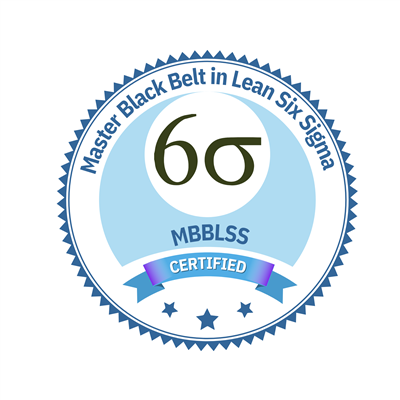Master Black Belts are highly skilled experts who oversee the implementation of Six Sigma throughout an organization. They support improvement efforts across all areas of the business, including suppliers and customers.
The Master Black Belt in Lean Six Sigma (MBBLSS)™ Certification is the highest level of expertise in business process improvement. It's usually achieved by top-performing Lean Six Sigma Black Belts who have achieved outstanding results. Master Black Belts play a key role in guiding the direction of their company's improvement efforts.
Obtaining the Master Black Belt in Lean Six Sigma (MBBLSS)™ Certification is crucial for those who want to lead Six Sigma projects and teams. This thorough course ensures they have a deep understanding of the Lean Six Sigma framework and can deliver significant improvements in every project they undertake.
E-Course Duration: 30 to 35 Hours

